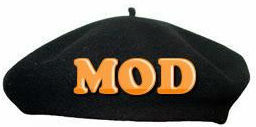Albion
Facilitator
- Dec 8, 2004
- 111,127
- 33,264
- Country
- United States
- Gender
- Male
- Faith
- Anglican
- Marital Status
- Married
Actually we do know it in the case of various saints; that is why St. Andrew is regarded as a saint, and commemorated even in the Anglican churches. Indeed, the mere suggestion that St. Andrew the First Called would be in hell is frankly contrary to piety.
Hold your fire. It's true (and I almost mentioned it in my previous post) that there are some saints about whom we all can be quite confident that they are in Heaven. The Apostles, for instance. BUT while that's true of these saints, prayers are directed -- with EO and RCC church permission -- to a host of others about whom that cannot be said.
In Orthodoxy, there are people considered to be saints only because they were popular with the people. In the Roman Church where there is a formal process, it's still taken for granted that the faithful will pray to the deceased while awaiting the necessary investigation into whether or not they are going to be canonized by the church!
So I think my point remains. In addition, this says nothing about the practice of praying to the saints for intercession being proper, even if we have a good reason for thinking them to be among those who are in Heaven.
Upvote
0


